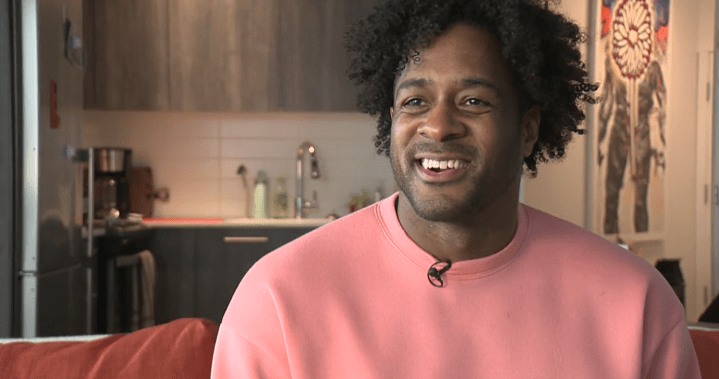More than two decades into his successful film career, actor, producer and activist Jesse Lipscombe describes acting as his “lifelong love.”
It’s a relationship he stumbled into the age of 14, when his mother was scouring the classifieds from their home in Edmonton, and noticed a casting call for a “loud and obnoxious” Black teen.
She told her son he’d be “perfect,” and it turned out, he was.
“I started to understand what the craft was, understand it’s actually a very difficult one,” Lipscombe said in an interview.
“I think it was more of a war of attrition — it took a while for me to understand what I was in, but I’ve fallen in love with it.”
Lipscombe, who now lives in Vancouver, is known for his starring role in the 2017 film, It’s Not My Fault and I Don’t Care Anyway. His performance in the Canadian comedy-drama earned him the Rosie Award for Best Performance by an Alberta actor, making him the first Black man to win.
He’s also an executive producer on the sketch comedy show, Tiny Plastic Men, which was nominated for three Canadian Screen Awards in 2015.
Throughout his career, he said he’s worked hard to advance Black representation in film and improve the quality of roles for Black actors, who — in an industry dominated by whiteness — have to “be better and compete for less work.”
“I understand the mission, I accept said mission, and hopefully more people will be able to walk that path a little easier after I’ve done it,” said Lipscombe.

One his mentors was legendary Bahamian-American actor Sidney Poitier.
Poitier was the first Black person to win an Academy Award for Best Actor for his role in the 1963 film Lilies of the Field. He died at the age of 94 in January.
“When I met him, I didn’t know who he was, the greatness of him — he just felt like this great uncle who would tell stories,” said Lipscombe.
“But since that time, I’ve always had this understanding of responsibility that I have to take in the roles that I pick, responsibility in the path that I choose.”
Representation in film must be more than a “check off boxes” exercise, added Lipscombe.
He said he understands it can be difficult to write scripts through a different “lens,” but film and TV executives need to understand that casting actors of all backgrounds, in deliberate and meaningful roles, leads to genuinely better content.
“It’s weird to say, ‘take risks,’ but that’s what it feels like for a lot of execs,” Lipscombe explained. “You’re taking a risk with a different look at a superhero or a different look at a leading man, and then the risk pays off and then people follow suit.
“It’s just we’re in the time now where we need people to make those bold moves and decisions, and I think the audience has an appetite for it as well.“

If no one creates the space for him, Lipscombe said he’ll make the space.
There have been improvements in film representation during his lifetime, and he said Vancouver is doing a “good job,” but there’s more work to be done.
Moving to the city has given him an opportunity to “take the craft by its horns,” and better position himself to create the material he wants to create.
Despite the pandemic, Lipscombe said he’s auditioning all the time, he’s writing an album, and will begin producing a handful of series he recently wrote.
“Lots of creating all the time and often speaking at different conferences for different companies and different schools, trying to offer those tools to make us all everyday activists,” he said.
His wish for Black History Month, he told Global News, is that everyone understands that Black history is collective history.
That history, he added, is about much more than slavery, and many of the beautiful things experienced by all people today as a result of the achievements of Black people.
“Change moves at the speed of empathy,” he explained. “The closer and faster we can get to that feeling that we are all connected … That’s when we see change happen at a rapid pace.”
© 2022 Global News, a division of Corus Entertainment Inc.



